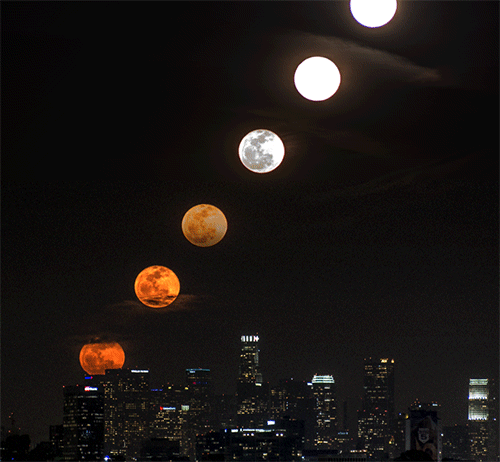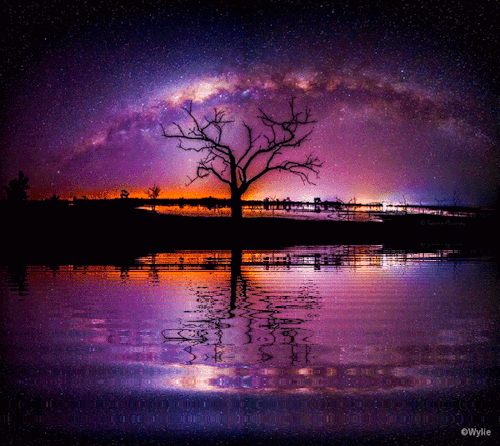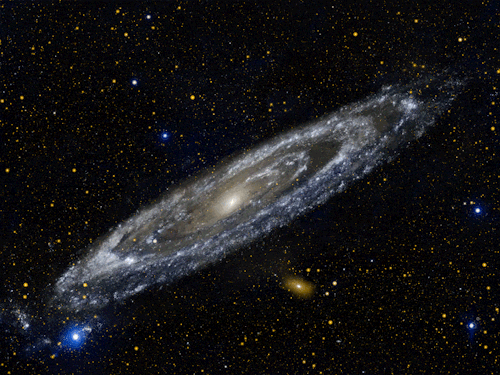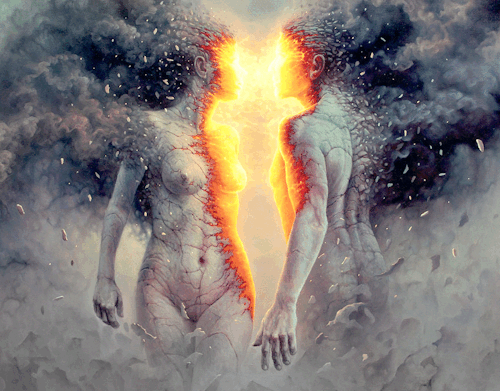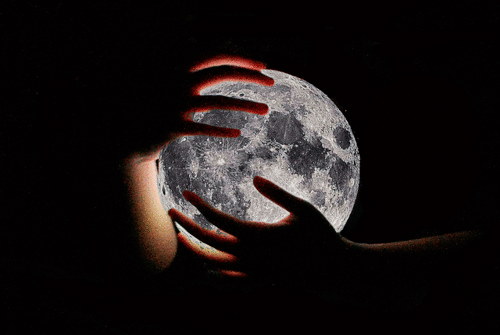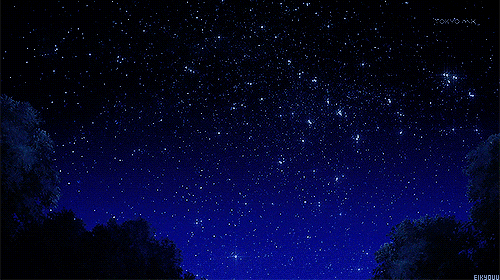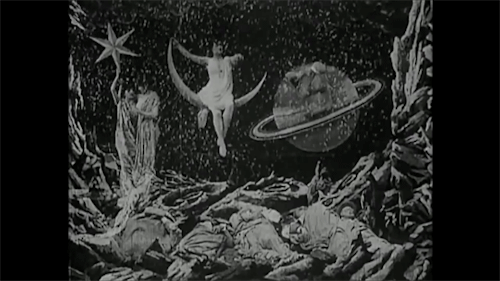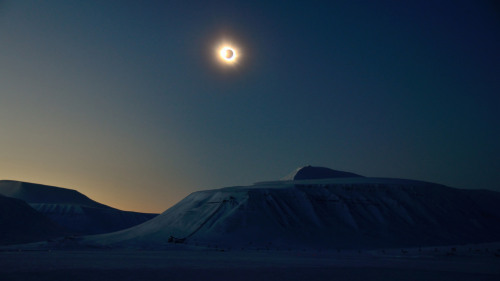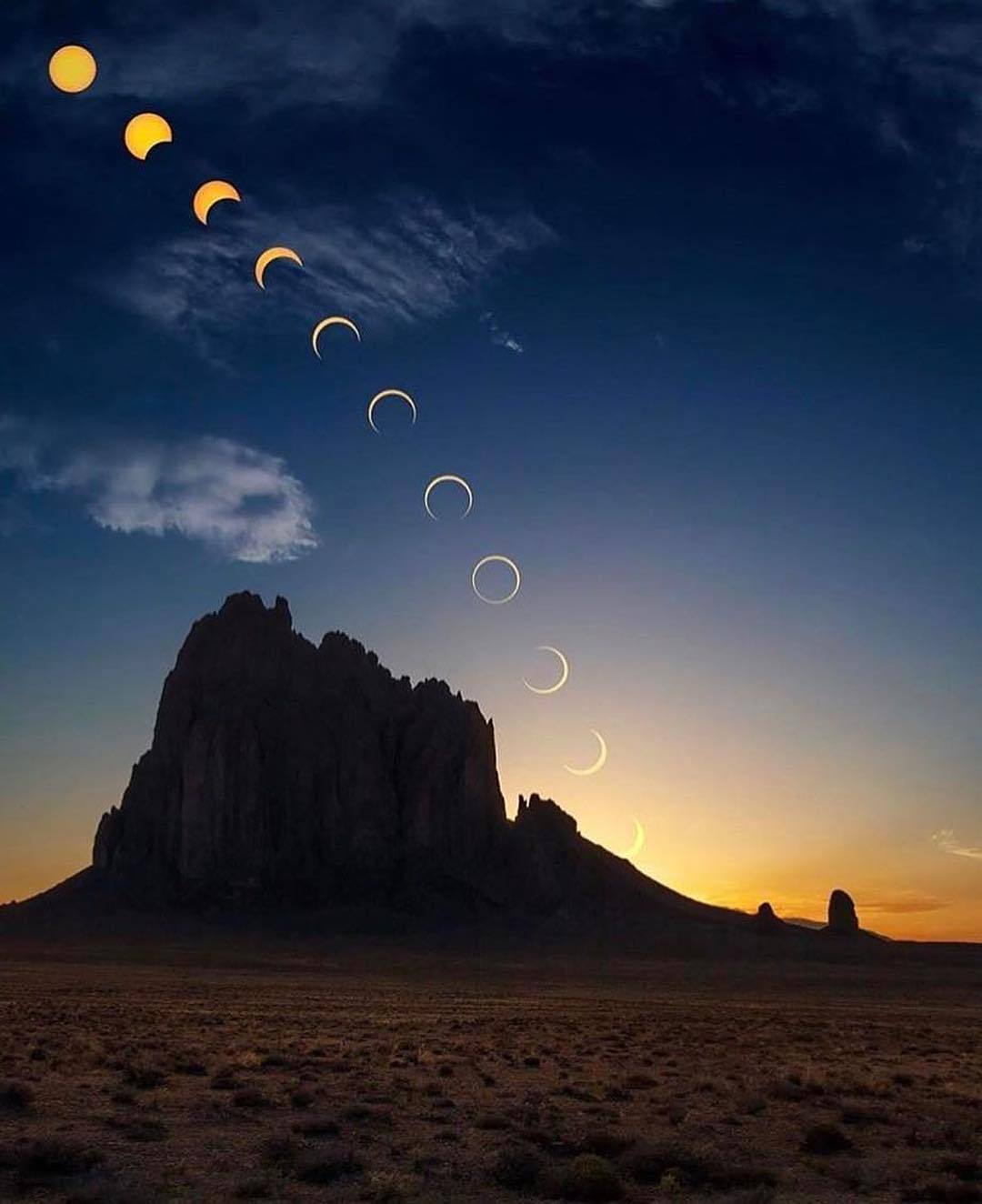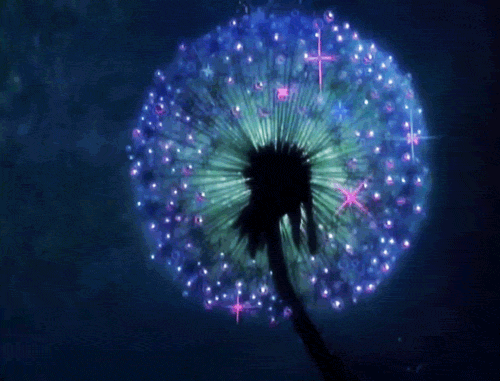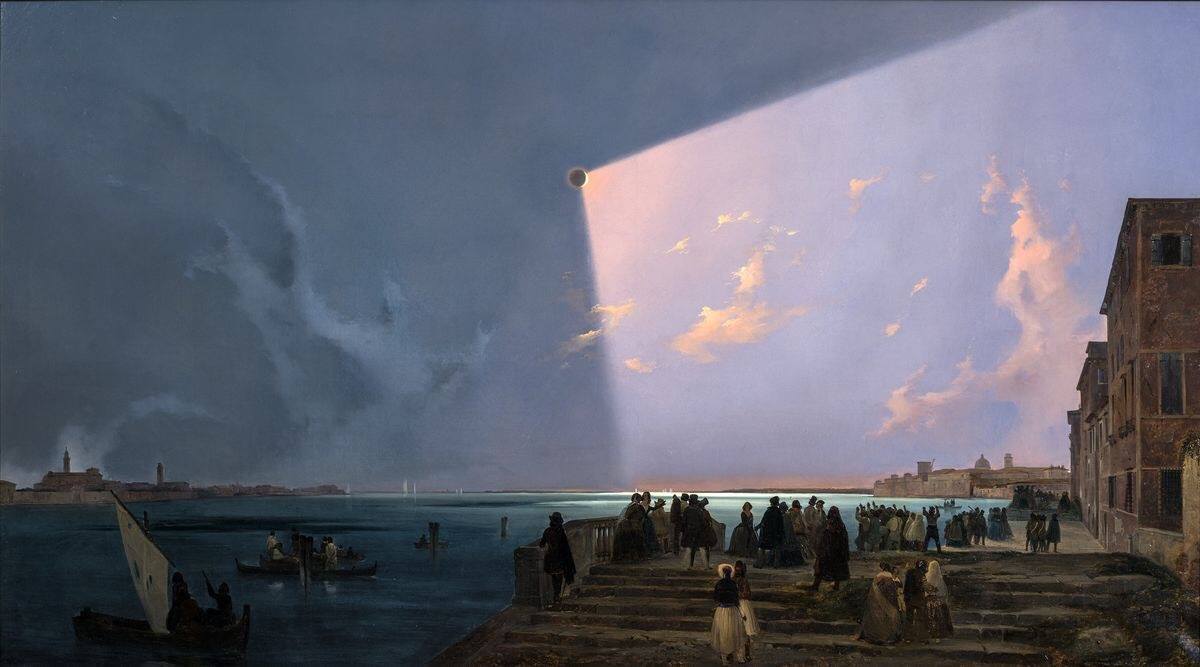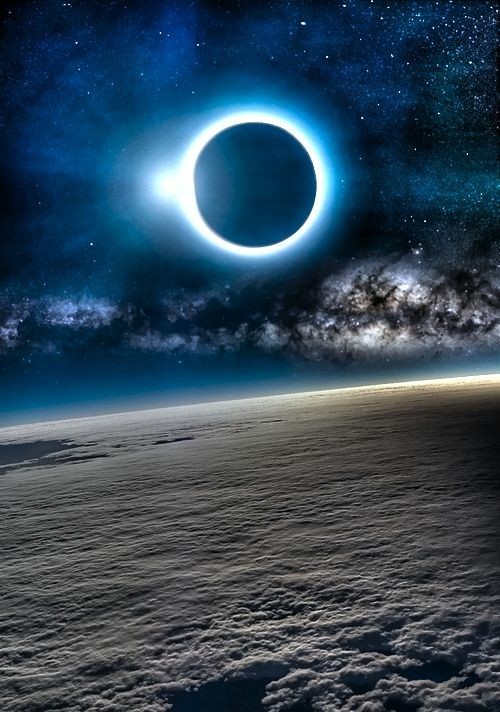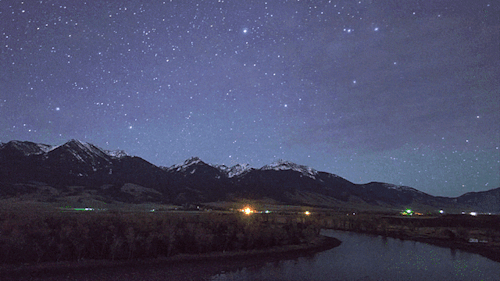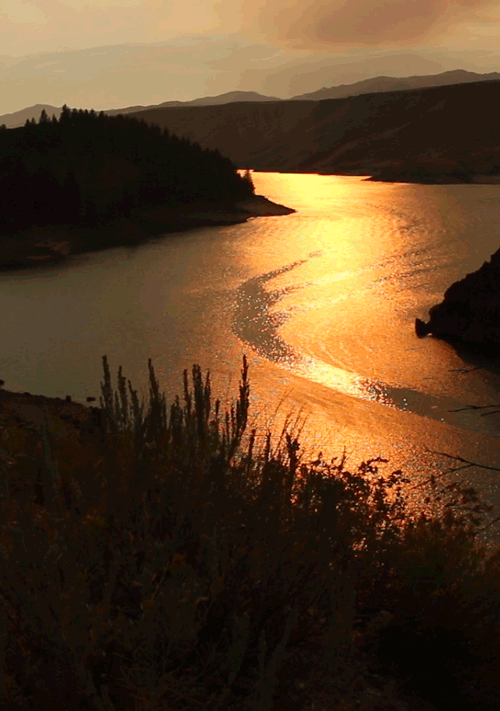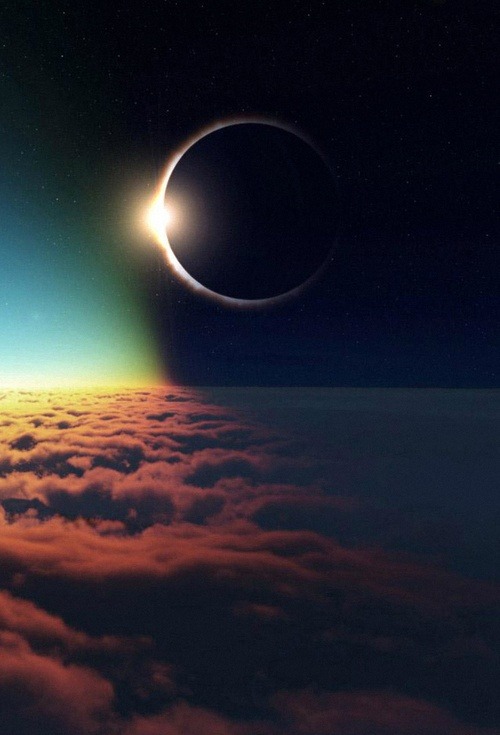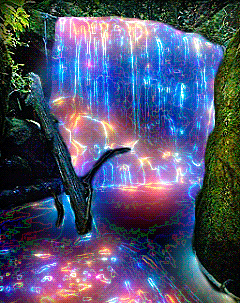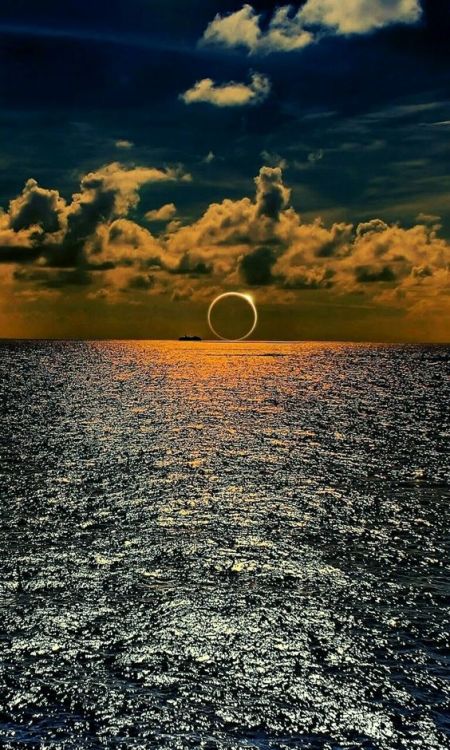Grahaṇa Darpaṇa
When the Sun or Moon are eclipsed, all waters become as sanctified as the Gaṅgā for bathing and religious purposes – Parāśara
During an eclipse all waters become like the Gaṅgā and all Brahmins like sage Vāsiṣṭha – Ārya Dharma Upatēcaṅkaḷ
In India, during an eclipse one can witness people from dozens of different lineages engaging in ceremonial bathing in the ocean, rivers or lakes.
In case of the birth of a child, avabhṛtha (ablution at close of yajña), Sūrya saṅkramaṇa or eclipse occurring at night, one may engage in a bath at night - otherwise not – Vāsiṣṭha
O’ honorable king, a man who gives four lakhs on the days of the saṅkramaṇa (passage of the Sun from one zodiacal sign to another,) does not obtain even the sixteenth part of merit that is obtained from fasting on an ekādaśī day. Indeed he who observes a fast on an ekādaśī day, gets the same fruit as the religious merit that is due to ritual bathing during the lunar or solar eclipse at the holy place of Prabhāsa – Padma Purāṇa
When the Moon is eclipsed by Rāhu ( lunar eclipse), all charity made is equal to the gift of land; all brahmanas are like Vyāsa, and all water becomes like the Gāṅga – Padma Purāṇa
It becomes clear through these passages that sages long ago believed that water became imbued with a special quality during an eclipse. It is important to note that this only applies to water being used for ritual or bathing purposes, but does not apply to the ingestion of water. Wells and water vessels used for drinking are covered with lids, sacred herbs and grasses during an eclipse.
At the time of a solar eclipse one should take a ritual bath. A man, who does not offer water with piṇḍas to the souls of deceased loved ones according to his capacity, becomes a caṇḍālā (outcast, pariah) – Padma Purāṇa
A bath in the Ganges during a solar eclipse yields 10 times the benefit of a bath during a Lunar eclipse – Devī Bhāgavatapurāṇa
Bathing, offering gifts, austerities, and burnt offerings may be made at night if an eclipse occurs – Parāśara
Those who live on the sea shore can take a ritual bath in the sea (samudra snāna) when the eclipse begins, but one should not take a ritual bath in the ocean after the eclipse is over. This is because we are not supposed to take ocean baths during Prathama (first day after the New Moon) – Ārya Dharma Upatēcaṅkaḷ
Samudra snāna or ritual bathing in the sea is generally to be avoided. The exceptions are days of an eclipse and certain other occasions under the guidance of your priest (purohit.) In puṇya kṣetras like Rameshwaram, samudra snāna can be done on all days. – Smṛti muktãphalam
While many texts extol the virtues of ritualistic ocean bathing (samudra snāna) Smṛti muktãphalam does not appear to be as enthusiastic about it as other texts.
One desirous of obtaining the manifold advantages attending an eclipse of the sun or moon must constantly bathe in the mornings during the two months of Māgha and Phālguna – Viṣṇu Smṛti
Bathing in the day is an auspicious form of bathing. Bathing at night is not approved unless there is an eclipse of the Moon – Parāśara
When new water comes in a river, for ten days we are not supposed to bathe in it. They say that a river enters into her menstrual cycle at that time. Some people do not bathe from the 1st to 3rd day of Aadi Month (July 15 - August 15). But if an eclipse, upakrama or saṅkrama(passage of the sun from one sign to the next) occurs during the river’s menstrual cycle, we are permitted to bathe in the river. – Ārya Dharma Upatēcaṅkaḷ
Mārkaṇḍeya Muni says ablution with cold water is more beneficial than that with the hot water. One’s own water is more favorable than the water borrowed or taken from others. Water on the surface of land is more beneficial than underground water. Flowing water is more advantageous than standing surface water. Water of a lake is more useful than the water of a falling spring. River water is relatively better than all these. The water from a holy shrine is far better in comparison to river water. Moreover, greater rivers and the river Gaṅga are better than the aforementioned sources, but the highest in reward is ablution in sea water – Śikṣāpātrī Bhāṣya
Brāhma siddhānta recommends looking at an eclipse through a curtain, cloth or through the reflection in a dish of oil or water. A pregnant women should not witness such views unless viewed through a curtain or cloth – Śikṣāpātrī Bhāṣya
The Sun should not be gazed upon while rising, setting or at noon. It should not be seen during an eclipse or reflected in water – Ārya Dharma Upatēcaṅkaḷ
The #1 most important Rule of any eclipse is to protect your eyes. Sunglasses will not protect your eyes!
Food
One must not eat food during the eclipse of the Sun or the Moon ~ Viṣṇu Smṛti
in the Mādhavīya, Gautama recommends that no food may be consumed in the period beginning four praharas (12 hours) prior to a solar eclipse, or three praharas ( 9 hours) prior to a lunar eclipse. This restriction excludes children, older ones and those who are suffering from illness. – Śikṣāpātrī Bhāṣya
If the sun or moon have set before an eclipse is over, one must bathe, and on the next day they may eat again, after having seen the next sun or moon rise – Viṣṇu Smṛti
If an eclipse occurs at dusk, no food should be taken for the rest of the day or night following such a sunset. If an eclipsed moon sets early in the morning, then no food should be consumed during the remaining part of the night or day till the following moonset – Śikṣāpātrī Bhāṣya
If the Sun or Moon set before an eclipse is over, one must bathe and abstain from food until the next sun or moonrise – Viṣṇu Smṛti
The Sun and Moon are the lords of plants and so when the eclipse comes, our stomach should be empty. – Ārya Dharma Upatēcaṅkaḷ
In Nirṇayasindhu, it prohibits such food to children, older ones and sick people for the period one prahara (3 hours) prior to the eclipse – Śikṣāpātrī Bhāṣya
Four Yāmams before a Solar eclipse, we may take food (One Yāma is approximately 3 hours). For a lunar eclipse, food can be taken before two Yāmas(6 hours). If the moon sets before the eclipse is over (grahaṇasthāmanam) then for the entire day, we should not take food and take food only after we see the moonrise the next day. If the sun sets before the eclipse is over, we should not take any food during the night and take food only after we see the sunrise and have bathed. – Ārya Dharma Upatēcaṅkaḷ
IMPURITY
In case of an eclipse there is āśauca similar to that of the death of a person – Dakṣa
Āśauca means impurity, defiled, uncleanliness or contamination. At birth it is called ‘janmāśauca’. At death it is called ‘mṛtāśauca’. Often you will see the term sūtaka as well associated with an impurity that arises from giving birth, miscarriage, eclipse or other event which may temporarily “contaminate” one due to some untoward event or calamity. During a birth, death or eclipse there will be an intermission (anadhyayana) of one’s daily duties or prayers. During this intermission there are often several purification rites done by family members, or in the case of the death of a king, performed by the entire country. Periods of intermission from study or certain rites usually lasts 24 to 72 hours, but some text give periods that can last as long as a year or longer depending on extenuating circumstances, or if one has committed a heinous act such as murder.
Three days during an eclipse is to be related to the start and end of an eclipse. As the Smṛti says, there should be one day of anadhyayana (intermission from study) after an eclipse of the sun or moon – Smṛti muktãphala
Mudras
Saṃdaṃśa mudrā is utilized for eclipses, especially solar eclipses
Bhagīratha mudrā is employed for lunar eclipses – Abhinaya Darpaṇa
Bhagīratha was a king who prayed to Brahmā to bring the river Gaṅgā down from heaven. Bhagīratha mudrā is a cross between Ardhachandra and Tripatāka mudrā
Svara
If Agni and Vayu mix, the air produces a particular sound. This is called “eclipse time,” and it is capable of causing death – Svara Cintāmaṇi
Rites
One should partake in a ritualistic bath in the beginning of an eclipse. Perform japa during the period of an eclipse. Give donations on release from the eclipse, and again engage in a ritual bath on the completion of the eclipse – Hemādri (Hemāḍapanta)
The worship of Śiva during saṅkrānti, or during solar/lunar eclipses is very auspicious – Śiva Purāṇa
Solar and lunar eclipses are auspicious days for the bathing of the idols of Viṣṇu and Śiva – Nīlamata Purāṇa
On saṅkrānti, Sunday, saptamī, vaidhṛti, vyatīpāta, Hasta-nakshatra, tvaṣṭṛ , Punarvasu, ekādaśī, caturdaśī, aṣṭamī, the new or full moon, results are magnified hundreds of times. During a solar or lunar eclipse the results are multiplied millions of times. – Māthura Māhātmya – Padma Purana
He shall not perform funeral rites at night unless an eclipse takes place – Āpastamba Dharmasūtra
Intermission of Rites
Though we can find many old verses throughout Vedic literature that indicate we can turbo-charge our spiritual practice during an eclipse, the nuances abound and you don’t have to look far to find seemingly contradictory passages. Ultimately, the counsel of a qualified guru or pundit can help to avoid pitfalls on this sensitive subject.
While the full Moon of wisdom is robbed of its radiance by the Rāhu of delusion, all actions such as the rites of bathing, alms-giving and sacrifice performed during the time of eclipse are fruitless – Varāha Upaniṣad – Kṛṣṇa Yajurveda
The context of this passage in the text does not appear to be literal, but instead appears to be metaphorical from a Vedāntic or philosophical viewpoint.
On the full or new moon, the fourteenth and eighth days of the moon (caturdaśī & aṣṭamī,) or the impurity by Rāhu ( eclipses of the sun and the moon,) after these events a day and night should be observed as holidays. According to the text, for three days one should not recite the Veda when there is the impurity caused by the death of a king. – Yājñavalkya Smṛti
A learned Brahmana shall not recite the Veda during three days, when he has accepted an invitation to a (funeral rite) in honour of one ancestor (ekoddiṣṭa), or when the king has become impure through a birth or death in his family (sūtaka), or when Rāhu by an eclipse makes the moon impure. – Yājñavalkya Smṛti
Even in vāsanta ritu, if malamāsa etc. occur. The first iṣṭi should not be performed if eclipse or adhikamāsa (intercalary month) occurs during the first parva; same with moudhyam of Guru and Śukra – Smṛti Arthaśāstra
If saṅkramaṇa or eclipse occurs before midnight, upakrama should not be done that day; if it occurs after midnight there is no blemish. – Gargya – Dharmśāstras
The Vedas are not to be recited for three days when Rāhu has corrupted the Moon – Manu
When Rāhu seizes the Sun and Moon all recitation must cease from that hour till the same time the next day – Gobhila
The reasons to discontinue recitation of the Vedas till the next day are earthquake, lightning, fall of meteors or an eclipse – Gautama Dharmasūtra
Sex and Conception
Sex is forbidden 24 hours before or after an eclipse, but preferably 72 hours before and after. It is not uncommon to stumble across traditional sayings like: “A child conceived during an eclipse will be born blind and have his feet where his hands should be and his hands where his feet should be. Cattle that conceive during an eclipse will miscarry.”
Even farmers will separate male and female animals during an eclipse, for farmers have observed abnormalities which they have linked to their animals conceiving during eclipses.
Pregnancy
“Nowadays it is believed that the embryo is sensitive, and sound, solar eclipse or a heavy cyclone can damage the child lying in the womb. Thus repeated disturbances in the five gross elements, which are necessary for building the body and nerve tissues may harm the child. This is known as Maha-bhuta vikara prakriti”—M.M.Pandya
Pregnant women should not come out during an eclipse – Ārya Dharma Upatēcaṅkaḷ
The Śikṣāpātrī Bhāṣya is the only text that appears to sanction pregnant women gazing at an eclipse through a curtain or a cloth. The vast majority of other texts appear to strictly forbid any exposure of a pregnant woman to the light or shadows of an eclipse.
Even a woman in her menses should take a ritual bath after the eclipse, in water poured by other women – Ārya Dharma Upatēcaṅkaḷ
After childbirth, the father should take a bath and perform nāndī śrāddham, whether it is night, sandhyā time or eclipse; he can do this even in the middle of some other pollution(āśauca) – Prajāpati -Smṛti muktãphalam
From China, to India and as far as Iran you can find an overwhelming amount of customs and old sayings that recommend keeping pregnant women away from the light and shadows of an eclipse. In some parts of India, even pregnant cattle were tied in their stalls and not let to roam into the ruptured light. A pregnant woman should not break sticks, grind grain, make bread, cook, or engage in cutting and cleaning. The veils are thin during an eclipse, so all the mother does on the day of the eclipse is said to effortlessly transfer onto the child, usually in a disharmonious way. Beliefs range from, all that a woman cuts and scars will surface as cuts on the child, to exposure of the mother to the eclipse makes her child born blind. A Pregnant woman should not nap, preferably, at least 4 hours before and 4 hours after an eclipse.
If you are not directly in the path of the eclipse, many of the ill effects are supposed to be nullified. I do not completely agree with this concept.
Tribal Lepchas, believe that exposure to the mother as well as the father can result in the birth of a stillborn child. Tribal Tharu women, believe exposure of the woman’s body to the eclipse could result in a miscarriage.
In Mexico there is a belief that exposure to the eclipsed Sun may cause the child to have a cleft lip, or other abnormality. The belief dates back to the Aztecs and is based on the theory that the entity that caused the Moon to have part of it obscured (bitten out) during the eclipse would cause the child to have part of them bitten out as well
Dāna
Dāna given in an auspicious field, or on the occasions of marriage, saṅkramaṇa (sun’s passage from one sign to the next), eclipse, death, birth of child and vyatīpāta is of inexhaustible merit. – Smṛti muktãphalam
Dāna can be a form of charity, offering or simply a gift. Dāna can be classified in many ways, but for the purposes of this article we will merely observe the 4 general types of Dāna - Dhruva dāna, Trika dāna, Kāmya dāna and Naimittika dāna. Giving during an eclipse, or Grahaṇa dāna generally falls under the classification of Naimittika dāna. The basic meaning of naimittika dāna is charity influenced by a special or particular cause.
Daśa Dāna (ten gifts) - Cow, land, til, gold, ghee, cloth, food grain, jaggery, silver, salt
The fruits secured by giving away dāna during solar eclipse at Kurukṣetra would indeed exceed the recitation of the — Lalitāsahasranāma – Brahmāṇḍa Purāṇa
Donating gold either at Kurukṣetra or Ramteerth, on a solar eclipse day, helps a man in attaining salvation – Skanda Purāṇa
One who has no money should earn in every way possible for the sake of daily yajña. If one is in a solar eclipse at Kurukṣetra, one should get goat, deerskin etc. even from a caṇḍāla (outcaste) and perform daily yajña. – Smṛtibhaskaram
A present made at the time of the lunar eclipse, is said to be a lakh times effective, and that made at the time of the solar eclipse is ten lakh times effective. The present made at the time of the lunar eclipse into the water of the Gāṅga is a crore times effective; and that made at the time of the solar eclipse into the water of the Gāṅga is ten crores more effective than a lunar eclipse – Padma Purāṇa
The acceptance of the gift of land at the time of an eclipse or during a period of impurity, is expatiated by observing a fast during three successive nights. – Mahābhārata anuśāsana parva
Every day in accordance with one's means and according to the rules as ordained, cows and other valuables should be given without injuring one’s means or the family estate. On special occasions (like) the eclipse of the moon, a greater (quantity) should be given with ease. ~ Mitākṣarā ~ Yājñavalkya Smṛti
One should give according to his desire gifts on the day of the solar eclipse, and also bathe at a holy place. These actions give inexhaustible merit. Giving a bull on a lunar or solar eclipse day is also excellent.– Padma Purāṇa
The Satsaṅgijīvan states that after one purifies oneself, one should offer donations according to one’s income. – Swami Shatānand
Dāna given in times like ayana, viṣuva, vyatīpāta, dinakṣaya, solar or lunar eclipse is undecaying – Sāṃvarta
Every day charity(dāna) should be given to a proper person as per one’s ability. On occasions like eclipse dānam should especially be given. – Yājñavalkya Smṛti
Dāna given in times like ayana, viṣuvam (equinox), solar eclipse, solar eclipse, saṅkramaṇa (sun changing signs) is undecaying. Dānam given in holy places like Prayag, sacred areas, temples and the banks of rivers is imperishable – Vyāsa
At the time of a solar or lunar eclipse, instantly stop all activities and chant the name of your God in a purified state. After the eclipse, householders should bathe with the clothes they are wearing and then make donations according to their means – Bhagavān Swami Nārāyaṇa – Shikshãpatri
Dāna given on the day of pūrṇimā associated with the star of that month is ten times more fruitful. Śraddhā performed on yugādi and manvadi days is also similar in value. Dāna during āmāvāsya is 100 times more fruitful. Done in the evening is 1000 times more fruitful. If done during viṣuva it is one lakh times and that Dāna given during solar eclipse (vyatīpāta) is limitless. – Yājñavalkya
During his travels all over India, Al-Bīrūnī observed pervasive acts of charity throughout Indian culture. He wrote circa 1020 AD, "It is obligatory with Hindus every day to give alms (dāna) as much as possible.” – Al-Bīrūnī’s India
BIRTH STAR
Those whose nakṣatras (Moon’s birth star) are conjoined the eclipse, should write the following śloka on a dried leaf and wear it on their forehead till the eclipse is over.
For a Lunar eclipse:
Indro, analo danda darasha ruksha prachedhaso Vayu, Kubera, eesaa, majjanma, rukshe mama raahisamsthe, Somoparagam shamayanthu sarve.
For a Solar eclipse:
Indro, analo danda darasha ruksha prachedhaso Vayu, Kubera, eesaa, majjanma, rukshe mama raahisamsthe, Arkoparagam shamayanthu may. – Ārya Dharma Upatēcaṅkaḷ
Meaning: Let Indra, Agni, Yāma, Nirṛti, Varuṇa, Vāyu, Kubera, Īśāna remove the sufferings due to lunar/solar eclipse
– ஆர்ய Dஹர்ம ஊபடெச்ஹன்கல்
Every year on the day of your birth star, one should take a ritual bath, wear auspicious items and do pūjā to Guru, Devas, Agni and Brahma, and then joyously celebrate. – Smṛtiratnam – Smṛti muktãphalam
Ancestor Worship – Śrāddha
No śrāddha should be performed in the twilight or at night by an learned man. A śrāddha may be performed at those times also when an eclipse (of the sun or of the moon) takes place. - Viṣṇu Smṛti
The regular Tarpaṇa is supposed to be done on all āmāvāsya as well as the beginning of the Months Meṣa, Karkaṭa, Tula and Makara as well as eclipses. – Ārya Dharma Upatēcaṅkaḷ
Śrāddha(rites to the ancestors) should not be done near sacred bathing places or during an eclipse – GaruḍaPurāṇa
(This śloka does not seem to align with many other authors)
Śrāddha which is offered them at the time of an eclipse satisfies the manes, as long as the moon and the stars exist, and acquires immense advantages and the fruition of all desires to the sacrificer. – Viṣṇu Smṛti
Kumbha śrāddha should be performed even in the intercalary month, so also on an eclipse day, day of the birth of a son etc. or of an expiatory rite.
Kāmya śrāddha may be performed when uttarāyaṇa or dakṣiṇāyana commence, or during a solar or lunar eclipse – Mārkaṇḍeya Purāṇa
The śrāddha ceremony may also take place on the full moon days in the months Māgha, Kārttika, and Āshāda on the twelfth day after the summer solstice, and during an eclipse of the sun or moon – Matsyapurāṇa – Viṣṇu Smṛti
In case of a solar eclipse, Tarpaṇa should be done at the commencement of the eclipse, and in the case of a lunar eclipse it should be done as the eclipse is ending. In ocean water Pitṛ Tarpaṇa should be done – Ārya Dharma Upatēcaṅkaḷ
No Śrāddha must be performed in the twilight or at night by an intelligent man. A Śrāddha may be performed at those times also when an eclipse (of the sun or of the moon) takes place. – Viṣṇu Smṛti
Śrāddha which is offered at the time of an eclipse satisfies the manes, as long as the moon and the stars are visible. This helps to obtain immense advantages and the fruition of all desires to the sacrificer. – Viṣṇu Smṛti
The puṇya(good karma, merit) that is accrued by bathing innumerable times in sacred rivers like the Gaṅgā, or the fruit secured by performing pratiṣṭhā of countless Śivaliṅgas in Varāṇasī, or the phala secured by giving away dānas during Sūrya grahaṇa (solar eclipse) at kurukṣetra would indeed exceed the recitation of the Lalitāsahasranāma – Brahmāṇḍa Purāṇa
Mantra and Stotram
Mantra and Stotram
He who recites this mantra during a solar eclipse, on the shores of great rivers or in front of Gaṇeśa every month, would obtain the siddhi and all he tells would become true — Śrī Gaṇapatyarthavaśīrṣa
Śambhu, again related this mantra to his own disciple, the muni Nārada, and Nārada on the occasion of the solar eclipse repeated this at the Puṣkara tīrtha – Nārada Pāñcarātra
During the solar eclipse in Puṣkara kṣetra, Brahma gave this mantra to his own son. If any man repeats this mantra seven lakhs times, he becomes a siddha in this mantra – Nārada Pāñcarātra
The eight-lettered mantra, as mentioned in the Vedas is the root mantra of Sarasvatī, “Aiṃ Klīṃ Sarasvatyaī Namaḥ”.
The mūla mantra to which each worshipper is initiated. Or when uttering the mantra, “Śrīṃ Hrīṃ Sarasvatyaī svāhā “
one is to offer everything to the Devi Sarasvatyaī . This mantra is the kalpavṛkṣa. (wish fulfilling tree).
Nārāyaṇa the ocean of mercy gave in ancient times this very mantra to Vālmīki in the holy land Bhārata varṣa on the banks of the Gāṅga. Next maharṣi Bhṛgu gave this mantra on the occasion of solar eclipse to maharṣi Śukrācārya in Puṣkara tīrtha. Then Marīci gave the mantra to Bṛhaspati on a lunar eclipse. – Devī Bhāgavatapurāṇa
During a solar eclipse, in a great river, or in front of a sacred image, having finished recitation one gets accomplishment of the mantra, becomes liberated from great obstacles, and are freed from great misfortune. Gaṇapatiopaniṣad – Atharva-Veda.
Till the end of an eclipse we should chant mantras and should not sleep – Ārya Dharma Upatēcaṅkaḷ
I have come across one pundit, who was adamant about reciting only mantras directly transferred to you by your guru during an eclipse.
Sacred Items
By wearing Rudrākṣas during eclipses, viṣusaṅkrānti (the end of Pisces and the beginning of Aries), new moon, full moon and other such auspicious days, one is freed of all sins. – Rudrākṣa Jābāla Upaniṣad – Sāmaveda
Food cooked before an eclipse should not be eaten and it should be thrown away. In case of curd or pickles (fermented items) pieces of dārbha grass should be placed over them. – Ārya Dharma Upatēcaṅkaḷ
Dārbha grass or Kuśa grass
Along with being placed around ceremonial fires to block negative vibrations, kuśa grass is placed on water pots, fermented foods and other perishable items to protect them from the tainted degrading light and shadows of an eclipse.
It is also placed around pregnant women while they reside inside during an eclipse as special protection from the fractured light and shadows.
Farming
At the time of Earthquakes or grahaṇas (eclipses), there should never be any breaking of bhūmi (tilling of the earth) which might eventually cause suffering to the limbs of the person breaking the earth. – Brahmāvaivarta Purāṇa
One should wear a new Tulasī mala, after taking a bath, or after the impure period following a solar or lunar eclipse. The old mala should be dropped under a tree or in a natural body of water – ocean, river or lake. – Śrī Vallabh Śaraṇam
During a lunar of solar eclipse, Tulsi should never be picked, harvested or gathered – Śiva Purāṇa
Tulasī, and Dūrvā/Kuśa grass are auspicious to have in your living area during an eclipse, especially Kuśa grass for pregnant women. Kuśa grass appears to have gained wide use during an eclipse, placed on anything wanting of preservation from the degrading light. It is even a common practice, to have a pregnant woman lay with Kuśa grass. Dārbha/Dūrvā grass and Tulasī are placed on food items, and used to cover all other auspicious items to protect them from the ill effects of the rays of an eclipse.
Gardening, ploughing and harvesting are forbidden during an eclipse. They say plants or trees planted during an eclipse will never bear fruit or flowers. Conversely, there are also customs to induce a barren tree to begin producing fruit by utilizing the reverse-polarity principle that occurs during an eclipse. These ancient farming techniques range from applications of fumigations of herbs (Turmeric, Vidanga) to driving a metal spike into the tree during an eclipse to shock it out of it’s barren state and provoke flowering.
This reverse-polarity principle can also be seen In Gulbarga where a fringe practice can be found as a custom. Mentally-challenged children are buried in the ground up to their necks during solar eclipses in the belief that this practice may cure/reverse their mental challenges.
Sacred Locations
Oh goddess, a person who bathes in (Sūrya Tīrtha) on the Ãditya Saṅkrānti day or on a solar or lunar eclipse, attains the result of performing a Rājasūya yajña – Māthura Māhātmya – Ādi Varāha Purāṇa
When the Sun is eclipsed, one obtains great merit by bathing at the confluence of two rivers, and gives in charity a pair of shoes, umbrella, water, clothes, food etc. – Nīlamata Purāṇa
Dipping in the holy spot of Kurukṣetra during an eclipse is equivalent to performing an Aśvamedha yājya
A person who bathes in Akura-Tīrtha during a solar eclipse certainly attains the results of performing a Rājasūya yajña and an Aśvamedha yajña Māthura Māhātmya – Ādi Varāha Purāṇa
The prince of Kekaya, along with princes from Matsya, Kosala, Vidharbha, Kuru, Srnjaya, Kamboja, Usinara, Madra, Kunti, Anarta, Kerala are present at the Samanta-pancaka in Kurukṣetra at the occasion of the solar eclipse – Bhāgavatapurāṇa
Visiting Amarkantak mountain during a solar or lunar eclipse is considered to be very auspicious – Padma Purāṇa
Then, as Rāma and Kṛṣṇa were living in Dvārakānā, there was on one day an eclipse of the sun as impressive as the end of the day of Brahmā . The people knowing that beforehand, o King, came from everywhere to the field of Samanta-pañcaka (the five lakes at Kurukṣetra) in the hope to benefit therefrom. – Bhāgavatapurāṇa
O goddess the pious result one attains on a solar eclipse in Varāṇasī is attained in Māthura by one who controls his senses – Māthura Māhātmya – Ādi Varāha Purāṇa
A Rājasūya yajña was a very complex ritual that took days to prepare and required many priests to perform as well as being one of the most expensive rituals to perform. It was set aside mainly for the inauguration of only the most talented and erudite kings and included over 100 separate rituals to bring to completion. Unfortunately, though remnants of this rite exist the knowledge required to perform this lengthy and intricate ritual in its original form has been lost to wars and invasions.
It is recommended that during eclipses one stays away from all caves, cemeteries, slaughter houses, dark lakes, places where there are no birds, dark forests, and haunted houses. If you do go out during an eclipse, make sure the location is bright, free from foul smells and full of clean air.
Many temples in India close during solar eclipses, and reopen only after specific purificatory rites are performed.
Top Ten Tips for American Eclipse
Post eclipseTop Ten Tips for American Eclipse
When an eclipse is over, all should take bath with clothes on, and householders shall give charities within their means, and the others i.e. renunciates and recluses shall do only worship of the Lord. Śikṣāpātrī Bhāṣya
Now, after the performance of Japa and on release from an eclipse, the householders should perform a ritual bath with clothes on and should donate gold etc. That donation should be made as per personal capacity. As per the vow made in regard to donation during eclipse - Japa, in accordance to that vow, one should make the donations, that is the advice – Śikṣāpātrī Bhāṣya
The Tainted energy of an eclipse stays on the clothes, so it is recommended that one change one's clothes immediately after an eclipse
Extraordinary Eclipses?
Is it at all possible for a solar or lunar eclipse to occur outside of a new or full moon day? Probably not, but there are references for this unlikely phenomenon.
Many ill-omens manifested themselves at that time. donkeys, jackals and dogs howled in large numbers. Birds screamed and thereby portended a world calamity. Comets appeared in every quarter of the heavens. There was an unusual glow on the horizon on all sides, idols shed tears from their eyes and a solar eclipse occurred even without it being āmāvāsya (new moon). – Rāmāyaṇa of Tulsidas Rāmacaritamānasa – Laṅkā Kāṇḍ
Oh king, one should never give up fasting on ekādaśī, even if it falls on Saturday, Sunday, or an eclipse day or on saṅkrānti day – Śrī Hari bhakti vilāsa
This passage appears to be utilizing the apūrvatā or arthavāda style of instruction which was often employed as a teaching tool and does not appear to be literal, for arguing the possibility of an eclipse occurring at the very end of caturdaśī or the very beginning of prathama is enough of a stretch, but an eclipse occurring on an ekādaśī day is entirely highly unlikely.
No messenger can travel about in the sky and no tidings come from there. The voice of its inhabitants are never heard, nor can any contact be established with them. Therefore the brāhmaṇa who predicts the eclipse of the sun and moon which occur in the sky must be considered as a man of great knowledge — Cāṇakya 4th century BCE
Philosophical use of the Nodes of the Moon in Vedāntic text
The light of the sun is goodness; the heat is the quality of passion, and its eclipse on the parvan days (full or new moon) must be understood to be of the quality of darkness. So in all shining bodies, there exist three qualities. And they act by turns in the several places in several ways. Among immovable entities, darkness is in the form of their belonging to the lower species; the qualities of passion are variable; and the oleaginous property is of the quality of goodness
The day should be understood to be threefold, the night is stated to be threefold, and likewise months, half-months, years, seasons, and the conjunctions. Three fold are the gifts given, threefold the sacrifices performed, threefold are the worlds, threefold the gods, threefold the departments of knowledge, and threefold the path. The past, the present, and the future; piety, wealth, and lust; the prāṇa, the apāna, and the udāna; these are the three qualities. And whatever there is in this world, all that is made of these three qualities The three qualities—goodness, passion, and darkness also—are always acting unperceived.
- Anugītā - K. T. Telang translation
This passage in the Anugītā relates the concept of the three Guṇas, Sattva, Rajas and Tamas to the Sun, its heat and the eclipse respectively. In essence, when we act from our highest center we are like sincere brāhmaṇas. When we act from passion we embody kṣatriyas and when we act from our ignorance we encompass śūdra qualities.
~~~~~~~~~~~~~~~~~~~~~~~~~~~~~~~~~~~~~~~~~~~~~~
The radiance of the sun exists even when interfered with by Rāhu during an eclipse. In this same manner the power of discernment is only interrupted in deep sleep. The Self exists as pure even though it is unrecognized due to the veil of Māya. When an individual awakens they becomes aware that they were asleep and their dreams were not actually real. Similarly, a person who awakens to the consciousness of the Self recognizes that their previous inexperience and lack of awareness was basically a delusion
- Śrī Dakṣiṇāmūrtiaṣṭakam
- Śrī Dakṣiṇāmūrtiaṣṭakam
~~~~~~~~~~~~~~~~~~~~~~~~~~~~~~~~~~~~~~~~~~~~~~~~~~~~~~~~~~~~~~~~~~
The soul is known as Manomaya for just as Rāhu the eclipsing shadow is seen along with the Moon, so is the soul directly seen only with Manas
Just as Rāhu - the eclipsing shadow - is cognised only when in association with a specific object such as the Sun or Moon, so also it is the association of the Atman with the cave of intelligence antah-karana that causes the cognition of Brahma – Taittirīya Upaṇiṣad with bhāṣyas of Śankarāchārya , Suresvarāchārya and Vidyarānya by A. Mahadeva Shastri
~~~~~~~~~~~~~~~~~~~~~~~~~~~~~~~~~~~~~~~~~~~~~~~~~~~~~~~~~~~~~~~~~~
From the dark I come to the variegated; from the variegated I come to the dark. Shaking off evil as a horse shakes dust from its hair, freeing myself from the body as the moon frees itself from the mouth of Rāhu, I fulfil all ends and obtain the uncreated world of Brahman – Chāndogyopaniṣad
Ādityahṛdayam
Ādityahṛdayam
Ādityahṛdayam
| ॥ आदित्यहृदयम्॥ | .. ādityahṛdayam .. |
| ततो युद्धपरिश्रान्तं समरे चिन्तया स्थितम्। | tato yuddhapariśrāntaṃ samare cintayā sthitam |
| रावणं चाग्रतो दृष्ट्वा युद्धाय समुपस्थितम्॥ १॥ | rāvaṇaṃ cāgrato dṛṣṭvā yuddhāya samupasthitam .. 1 .. |
| दैवतैश्च समागम्य द्रष्टुमभ्यागतो रणम्। | daivataiśca samāgamya draṣṭumabhyāgato raṇam |
| उपागम्याब्रवीद्राममगस्त्यो भगवान् ऋषिः॥ २॥ | upāgamyābravīdrāmamagastyo bhagavān ṛṣiḥ .. 2 .. |
| राम राम महाबाहो शृणु गुह्यं सनातनम्। | rāma rāma mahābāho śṛṇu guhyaṃ sanātanam |
| येन सर्वानरीन् वत्स समरे विजयिष्यसि॥ ३॥ | yena sarvānarīn vatsa samare vijayiṣyasi .. 3 .. |
| आदित्यहृदयं पुण्यं सर्वशत्रुविनाशनम्। | ādityahṛdayaṃ puṇyaṃ sarvaśatruvināśanam |
| जयावहं जपेन्नित्यम् अक्षय्यं परमं शिवम्॥ ४॥ | jayāvahaṃ japennityam akṣayyaṃ paramaṃ śivam .. 4 .. |
| सर्वमङ्गलमाङ्गल्यं सर्वपापप्रणाशनम्। | sarvamaṅgalamāṅgalyaṃ sarvapāpapraṇāśanam |
| चिन्ताशोकप्रशमनम् आयुर्वर्धनमुत्तमम्॥ ५॥ | cintāśokapraśamanam āyurvardhanamuttamam .. 5 .. |
| रश्मिमंतं समुद्यन्तं देवासुरनमस्कृतम्। | raśmimaṃtaṃ samudyantaṃ devāsuranamaskṛtam |
| पूजयस्व विवस्वन्तं भास्करं भुवनेश्वरम्॥ ६॥ | pūjayasva vivasvantaṃ bhāskaraṃ bhuvaneśvaram .. 6 .. |
| सर्वदेवात्मको ह्येष तेजस्वी रश्मिभावनः। | sarvadevātmako hyeṣa tejasvī raśmibhāvanaḥ |
| एष देवासुरगणाँल्लोकान् पाति गभस्तिभिः॥ ७॥ | eṣa devāsuragaṇām̐llokān pāti gabhastibhiḥ .. 7 .. |
| एष ब्रह्मा च विष्णुश्च शिवः स्कन्दः प्रजापतिः। | eṣa brahmā ca viṣṇuśca śivaḥ skandaḥ prajāpatiḥ |
| महेन्द्रो धनदः कालो यमः सोमो ह्यपां पतिः॥ ८॥ | mahendro dhanadaḥ kālo yamaḥ somo hyapāṃ patiḥ .. 8 .. |
| पितरो वसवः साध्या ह्यश्विनौ मरुतो मनुः। | pitaro vasavaḥ sādhyā hyaśvinau maruto manuḥ |
| वायुर्वह्निः प्रजाप्राण ऋतुकर्ता प्रभाकरः॥ ९॥ | vāyurvahniḥ prajāprāṇa ṛtukartā prabhākaraḥ .. 9 .. |
| आदित्यः सविता सूर्यः खगः पूषा गभस्तिमान्। | ādityaḥ savitā sūryaḥ khagaḥ pūṣā gabhastimān |
| सुवर्णसदृशो भानुर्हिरण्यरेता दिवाकरः॥ १०॥ | suvarṇasadṛśo bhānurhiraṇyaretā divākaraḥ .. 10 .. |
| हरिदश्वः सहस्रार्चिः सप्तसप्तिर्मरीचिमान्। | haridaśvaḥ sahasrārciḥ saptasaptirmarīcimān |
| तिमिरोन्मथनः शम्भुस्त्वष्टा मार्ताण्ड अंशुमान्॥ ११॥ | timironmathanaḥ śambhustvaṣṭā mārtāṇḍa aṃśumān .. 11 .. |
| हिरण्यगर्भः शिशिरस्तपनो भास्करो रविः। | hiraṇyagarbhaḥ śiśirastapano bhāskaro raviḥ |
| अग्निगर्भोऽदितेः पुत्रः शङ्खः शिशिरनाशनः॥ १२॥ | agnigarbho'diteḥ putraḥ śaṅkhaḥ śiśiranāśanaḥ .. 12 .. |
| व्योमनाथस्तमोभेदी ऋग्यजुःसामपारगः। | vyomanāthastamobhedī ṛgyajuḥsāmapāragaḥ |
| घनवृष्टिरपां मित्रो विन्ध्यवीथीप्लवङ्गमः॥ १३॥ | ghanavṛṣṭirapāṃ mitro vindhyavīthīplavaṅgamaḥ .. 13 .. |
| आतपी मण्डली मृत्युः पिङ्गलः सर्वतापनः। | ātapī maṇḍalī mṛtyuḥ piṅgalaḥ sarvatāpanaḥ |
| कविर्विश्वो महातेजाः रक्तः सर्वभवोद्भवः॥ १४॥ | kavirviśvo mahātejāḥ raktaḥ sarvabhavodbhavaḥ .. 14 .. |
| नक्षत्रग्रहताराणामधिपो विश्वभावनः। | nakṣatragrahatārāṇāmadhipo viśvabhāvanaḥ |
| तेजसामपि तेजस्वी द्वादशात्मन् नमोऽस्तु ते॥ १५॥ | tejasāmapi tejasvī dvādaśātman namo'stu te .. 15 .. |
| नमः पूर्वाय गिरये पश्चिमायाद्रये नमः। | namaḥ pūrvāya giraye paścimāyādraye namaḥ |
| ज्योतिर्गणानां पतये दिनाधिपतये नमः॥ १६॥ | jyotirgaṇānāṃ pataye dinādhipataye namaḥ .. 16 .. |
| जयाय जयभद्राय हर्यश्वाय नमो नमः। | jayāya jayabhadrāya haryaśvāya namo namaḥ |
| नमो नमः सहस्रांशो आदित्याय नमो नमः॥ १७॥ | namo namaḥ sahasrāṃśo ādityāya namo namaḥ .. 17 .. |
| नम उग्राय वीराय सारङ्गाय नमो नमः। | nama ugrāya vīrāya sāraṅgāya namo namaḥ |
| नमः पद्मप्रबोधाय मार्ताण्डाय नमो नमः॥ १८॥ | namaḥ padmaprabodhāya mārtāṇḍāya namo namaḥ .. 18 .. |
| ब्रह्मेशानाच्युतेशाय सूर्यायादित्यवर्चसे। | brahmeśānācyuteśāya sūryāyādityavarcase |
| भास्वते सर्वभक्षाय रौद्राय वपुषे नमः॥ १९॥ | bhāsvate sarvabhakṣāya raudrāya vapuṣe namaḥ .. 19 .. |
| तमोघ्नाय हिमघ्नाय शत्रुघ्नायामितात्मने। | tamoghnāya himaghnāya śatrughnāyāmitātmane |
| कृतघ्नघ्नाय देवाय ज्योतिषां पतये नमः॥ २०॥ | kṛtaghnaghnāya devāya jyotiṣāṃ pataye namaḥ .. 20 .. |
| तप्तचामीकराभाय वह्नये विश्वकर्मणे। | taptacāmīkarābhāya vahnaye viśvakarmaṇe |
| नमस्तमोऽभिनिघ्नाय रुचये लोकसाक्षिणे॥ २१॥ | namastamo'bhinighnāya rucaye lokasākṣiṇe .. 21 .. |
| नाशयत्येष वै भूतं तदेव सृजति प्रभुः। | nāśayatyeṣa vai bhūtaṃ tadeva sṛjati prabhuḥ |
| पायत्येष तपत्येष वर्षत्येष गभस्तिभिः॥ २२॥ | pāyatyeṣa tapatyeṣa varṣatyeṣa gabhastibhiḥ .. 22 .. |
| एष सुप्तेषु जागर्ति भूतेषु परिनिष्ठितः। | eṣa supteṣu jāgarti bhūteṣu pariniṣṭhitaḥ |
| एष एवाग्निहोत्रं च फलं चैवाग्निहोत्रिणाम्॥ २३॥ | eṣa evāgnihotraṃ ca phalaṃ caivāgnihotriṇām .. 23 .. |
| वेदाश्च क्रतवश्चैव क्रतूनां फलमेव च। | vedāśca kṛtavaścaiva kṛtūnāṃ phalameva ca |
| यानि कृत्यानि लोकेषु सर्व एष रविः प्रभुः॥ २४॥ | yāni kṛtyāni lokeṣu sarva eṣa raviḥ prabhuḥ .. 24 .. |
| ॥ फलश्रुतिः॥ | |
| एनमापत्सु कृच्छ्रेषु कान्तारेषु भयेषु च। | enamāpatsu kṛcchreṣu kāntāreṣu bhayeṣu ca |
| कीर्तयन् पुरुषः कश्चिन्नावसीदति राघव॥ २५॥ | kīrtayan puruṣaḥ kaścinnāvasīdati rāghava .. 25 .. |
| पूजयस्वैनमेकाग्रो देवदेवं जगत्पतिम्। | pūjayasvainamekāgro devadevaṃ jagatpatim |
| एतत् त्रिगुणितं जप्त्वा युद्धेषु विजयिष्यसि॥ २६॥ | etat triguṇitaṃ japtvā yuddheṣu vijayiṣyasi .. 26 .. |
| अस्मिन् क्षणे महाबाहो रावणं त्वं वधिष्यसि। | asmin kṣaṇe mahābāho rāvaṇaṃ tvaṃ vadhiṣyasi |
| एवमुक्त्वा तदागस्त्यो जगाम च यथागतम्॥ २७॥ | evamuktvā tadāgastyo jagāma ca yathāgatam .. 27 .. |
| एतच्छ्रुत्वा महातेजा नष्टशोकोऽभवत्तदा। | etacchrutvā mahātejā naṣṭaśoko'bhavattadā |
| धारयामास सुप्रीतो राघवः प्रयतात्मवान्॥ २८॥ | dhārayāmāsa suprīto rāghavaḥ prayatātmavān .. 28 .. |
| आदित्यं प्रेक्ष्य जप्त्वा तु परं हर्षमवाप्तवान्। | ādityaṃ prekṣya japtvā tu paraṃ harṣamavāptavān |
| त्रिराचम्य शुचिर्भूत्वा धनुरादाय वीर्यवान्॥ २९॥ | trirācamya śucirbhūtvā dhanurādāya vīryavān .. 29 .. |
| रावणं प्रेक्ष्य हृष्टात्मा युद्धाय समुपागमत्। | rāvaṇaṃ prekṣya hṛṣṭātmā yuddhāya samupāgamat |
| सर्वयत्नेन महता वधे तस्य धृतोऽभवत्॥ ३०॥ | sarvayatnena mahatā vadhe tasya dhṛto'bhavat .. 30 .. |
| अथ रविरवदन्निरीक्ष्य रामं | atha raviravadannirīkṣya rāmaṃ |
| मुदितमनाः परमं प्रहृष्यमाणः। | muditamanāḥ paramaṃ prahṛṣyamāṇaḥ |
| निशिचरपतिसंक्षयं विदित्वा | niśicarapatisaṃkṣayaṃ viditvā |
| सुरगणमध्यगतो वचस्त्वरेति॥ ३१॥ | suragaṇamadhyagato vacastvareti .. 31 .. |
| ॥ इति आदित्यहृदयम् मन्त्रस्य॥ | .. iti ādityahṛdayam mantrasya .. |


